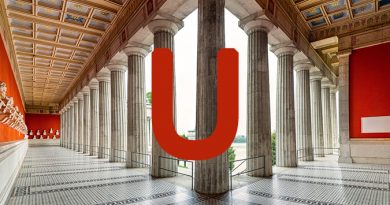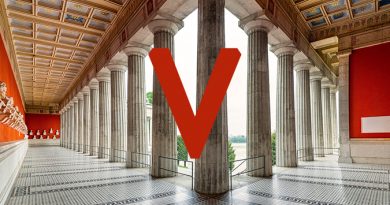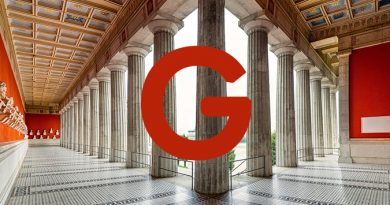L
Leon Johnson Ladner Lawyer, MP b. Nov. 29, 1884, Ladner, B.C.; d. April 12, 1978, Vancouver. His father Thomas and uncle William founded Ladner. After BA (1907), LL.B (U. of T, 1909), admitted to bar in 1910. In 1912, began his Vancouver law practice. A founder of UBC convocation (1912). Founder of Ladner, Downs, one of Vancouver’s largest law firms. Liberal Conservative MP, Vancouver South (1921-30). UBC senator (1955-61). In 1957, elected to UBC’s board of governors. Reappointed in 1963; retired in 1966. Honorary lecturer, faculty of law. Donated Ladner Carillon and Clock Tower to UBC in honor of B.C. pioneers. LL.D (UBC, 1967). Active in Conservative party.
Thomas Ellis Ladner Farmer, salmon canner b. Sept. 8, 1837, Trenant Park, Cornwall, Eng.; d. April 24, 1922, Vancouver. Came to B.C. in 1858. In 1868, with brother William Ladner, was first to preempt land on site of Ladner, eventually owning 485 hectares. A successful farmer and pioneer salmon canner at Ladner’s Landing (later Ladner). Owner of Delta Canning. Moved to Vancouver in 1909.
William Henry Ladner Farmer b. Nov. 28, 1826, Trenant Park, Cornwall, Eng.; d. Nov. 1, 1907, Ladner, B.C. Came to B.C. on May 15, 1858 on steamer Brother Jonathan, arriving May 30 at Fort Langley by skiff to avoid custom duties at mouth of Fraser River. Left Langley for Hope on June 1, 1858, to work as miner and trader. Appointed customs agent and government officer. First Mainland constable. Ran a pack train to the Interior to 1865. In 1868, built a large home, Frogmore, at Ladner’s Landing (later Ladner), to farm and raise stock. In 1872, named justice of the peace. First reeve of Delta (1880). His daughter, Delta Mary, was the first white baby born in Ladner.
Arthur Laing Politician b. Sept. 9, 1904, Eburne, B.C.; d. Feb. 13, 1975, Vancouver. Elected first Lib. MP for Vancouver South (June 1949) after two attempts. In 1953, resigned from federal office to become B.C. Liberal leader; elected MLA. Retired in 1959, then ran again federally in June 1962. One of only two B.C. members in Lester Pearson’s cabinet after 1962 election. As head of Indian affairs, he occasionally raised the ire of Native bands. After the 1968 election, he was transferred to public works. On his 70th birthday, the bridge between South Vancouver and Sea Island was named in his honor by Pierre Trudeau.
Lily J. Laverock Theatre impresario, reporter b. Edinburgh, Scotland; d. Dec. 2, 1969, Duncan, B.C., at 89. First woman to graduate in moral philosophy from McGill. First woman reporter in Vancouver with the World. Two years later, assigned women’s editor of News-Advertiser. In 1909, founded Vancouver branch of Canadian Women’s Press Club. An avid arts supporter, she promoted her first Celebrity Concert in 1921, brought in world-famed performers like Kreisler, Heifetz, Melba, Gigli, Pablo Casals, packed the Denman Arena auditorium with acts like the Ballet Russe de Monte Carlo and Belgian Royal Symphonic Band. WWII ended her impresario efforts. “Her pen was ever ready in the cause of women’s suffrage.”
John Lawson West Vancouver’s first permanent white settler b. April 15, 1860, Cheltenham, Ont.; d. March 8, 1954, Vancouver. Arrived in B.C. in 1887. After 21 years as a railroad worker, bought property in W. Vancouver area in 1903. Planted holly trees by “burn” (stream), coining the name Hollyburn. Second reeve of West Vancouver (1913). Developed ferry service to Vancouver (1909) aboard the 35-foot launch, West Vancouver. The Seafoam, a 60-footer, replaced it. Established first school at Capilano, was first postmaster and telephone agent. “The history of West Vancouver is the history of John Lawson.” In 1939, his daughter, Gertrude, a teacher, was one of the first women in B.C. to obtain a mortgage.
Ronald Bick Lee (born Yat Yee Lee) Businessman, community leader b. 1892, Ong Sum Village, Toisan, Guangdong Province, China; d. Dec. 22, 1994, Vancouver. Arrived in Victoria at 17; worked as a dishwasher. In 1914, returned to China to marry Gin King Choon from a nearby village. From 1916, worked at White Lunch on Hastings and Castle Hotel on Granville. In 1921, founded Foo Hung Co., a leading importer of Asian goods. Active in politics and a philanthropist. Chairman, Vancouver Chinese Public School; president, Lee’s Benevolent of Canada; chair, Lee’s Association of North America. Charter member, Vancouver Chinatown Lion’s Club. His son, Robert H. Lee, a UBC graduate, developer and philanthropist served as UBC chancellor, June 25, 1993 to June 25, 1996.
Wallis Walter Lefeaux Barrister, socialist b. Sept. 19, 1881, London, Eng.; d. Nov. 24, 1972, West Vancouver. After clerking in England, arrived in Canada in 1901. Worked as fur trader, grocer, real estate agent. In 1912, he ran in the Comox riding for the Socialist Party of Canada (SCP), but lost. In 1918, became a lawyer and defended objectors to military training. In 1919, defended the worker leaders of Winnipeg Strike. “Offered classes in economics in which Das Kapital was taught.” An original CCF member, elected CCF president for three consecutive terms. In 1936, visited Europe and Asia, including Moscow. MLA, Vancouver Center (1941-45). Declined requests to run for a federal seat.
John Matthew Lefevre Surgeon, businessman b. Oct. 12, 1853, Brockville or Belleville, Ont.; d. Sept. 15, 1906, Vancouver. Graduate of McGill (1879); later studied with Sir William Osler. Came to Vancouver with wife Lily Lefevre in 1886, as surgeon general, CPR’s Pacific Division. The couple crossed the Rockies by rail before the division’s official opening. Member of first city council (1886); alderman (1887-89). In 1888, built the Empire Building (603 W. Hastings), site of his original cottage. With William Farrell (see bio), co-founded B.C. Electric Railway, and Burrard Inlet and New Westminster Telephone (later B.C. Telephone).
Lily Alice Lefevre (née Cooke) Poet, hostess, philanthropist b. April 5, 1853, Kingston, Ont.; d. Oct. 17, 1938, Vancouver. As a girl, won a medal for best descriptive poem of a Montreal carnival. Wrote many of her “loveliest verses” about Vancouver. Married J.M. Lefevre in 1883. Organized first Imperial Order of Daughters of the Empire in Vancouver on Edward VII’s coronation, Aug. 9, 1902. A founder of the Vancouver Art Gallery; active member, Canadian Authors’ Association. The Lefevre’s home, Langaravine (6101 N.W. Marine), was a social centre for more than 50 years. In 1934, presented a $5,000 scholarship and gold medal to UBC in her husband’s memory. Biblio: The Lions’ Gate (1895; republished in 1936 to celebrate Vancouver’s jubilee) and A Garden by the Sea.
Harry Farnham Germain Letson Soldier b. Sept. 26, 1896, Vancouver; d. April 11, 1992, Ottawa, Ont. First graduate of mechanical engineering at UBC. Won Belgian Military Cross (1917). From 1923-36, member of UBC’s mechanical and electrical engineering department. Between wars, served with Vancouver’s Duke of Connaught’s Own 13th Armored Regiment, COTC at UBC and 23rd Infantry Brigade. Named commander in 1927. In WWII, held posts as Canadian military attache and commander of Canadian Army staff in Washington, DC, and adjutant-general in Ottawa. In 1944, donated 150,000 engineering books and periodicals to UBC. LL.D (UBC, 1945). In 1949, as the Governor General’s secretary, named honorary lieutenant-colonel. OBE (1949).
Sherwood Lett Judge b. Aug. 1, 1895, Iroquois, Ont.; d. July 24, 1964, Vancouver. After distinguished service in both world wars, named first Canadian representative (1954-55) on International Control Commission to oversee the ceasefire and disengagement of French forces in North Vietnam and the country’s political stabilization. Chief justice of B.C. (1955-64). In 1963, ruled expropriation of a private company, B.C. Electric, by the provincial government’s B.C. Hydro and Power Authority, to be illegal. The province was forced to pay far more to acquire B.C. Electric. LL.D (UBC, 1945).
Larry Lillo Theatre director b. Sept. 20, 1946, Kinuso, Alta.; d. June 2, 1993, Vancouver. Attended Royal Roads Military College (NS); BA (St. Francis Xavier). Studied at U. of Washington, then in New York City. Received MA in directing (UBC). Co-founder, director and actor with Tamahnous Theatre (1971-81). Freelance theatre director, 1981-85. Artistic director, Grand Theatre, London, Ont. (1986), and Vancouver Playhouse (1988). Under his leadership, Playhouse subscriptions rose from 5,800 (1988) to nearly 12,000 (1992/93). Winner of a Jessie (Vancouver) and Dora (Toronto) for A Lie of the Mind. Directed and developed many new Canadian plays. His partner, John Moffat (d. May 16, 1995, Vancouver, at 39) was an award-winning actor.
John Linn Stonemason b. July 12, 1821, Corstorphine near Edinburgh, Scotland; d. April 18, 1876, Lynn Valley, B.C. One of Colonel Moody’s sappers (Royal Engineers), he came to B.C. in 1859 to build the Cariboo Road. After the unit was disbanded in 1863, the officers returned to England. Most of the men, including Linn, remained in B.C. An original pioneer of Sapperton. On Feb. 10, 1871, he received a 150-acre Crown military grant and settled with wife and six children at the mouth of Lynn Creek, a misspelling of his name. “A strapping Scottish stonemason.”
Marianne Linnell Civic leader b. 1914, Calgary, Alta.; d. June 6, 1990, Vancouver. A Vancouver NPA alderman, first elected in 1961, she served five terms to 1974. The only woman member of Canada’s Centennial Commission. Chair of many committees from the Queen Elizabeth Theatre to sewers. In 1963, as chair of B.C. Aviation Council, she banned backyard burning. Director and columnist, The Sun’s Edith Adams’ Cottage. Rejected SC and ran for PC MLA (Vancouver-Point Grey, 1972) but was defeated by Garde Gardom. PC spokesperson for small business, municipal affairs and “that forgotten individual, the housewife.” Described as “more rare steak than asparagus souffle.”
Dorothy Livesay (b. October 12, 1909 in Winnipeg, Manitoba, d. December 29, 1996 in Victoria) She published 25 volumes of poetry and prose; founding member of the League of Canadian Poets; an annual B.C. book prize for poetry is named in her honour. Awards include: Jardine Memorial Prize (1929); Governor General’s Literary Award for poetry (1944 and 1947); Lorne Pierce Medal (1947); Queen’s Canada Medal (1977); Order of Canada (1978); Officer of the Order of Canada (1987); Order of British Columbia (1992), also many honourary degrees. (Grace Darney) See this site.
Mary Livingstone (born Sadie Marks) Radio performer b. c. 1906-09, Seattle, Wash.; d. June 30, 1983, Hollywood, Calif. Lived in Vancouver as a child. Her father, David Marks, was a founder and president of Schara Tzedeck synagogue (1917-). Met Benny Kubelsky (Jack Benny), a vaudeville performer, at a Passover seder at her family’s home, Ferrara Court (504 E. Hastings) in 1922. Met him again in 1926 while working at The May Co. in Los Angeles; they married in 1927. Played his wisecracking partner for 21 years on his radio show.
Eudora Lochead Pioneer store owner, poet d. Feb. 2, 1937, North Vancouver. Her (estranged) husband, James, was a logging contractor. She opened Hastings Grove Store, the first general store in the area, on Curtis in Burnaby in 1911. Above the store, she ran a rooming house with 20 bedrooms (tents outside housed the overflow); the dining room sat 60 boarders. Two cousins, Marion and Emma, and son William (d. WWI) assisted. Concerts were held fortnightly with Eudora playing the violin. Her next store, in an area now called Lochdale, opened in 1913 at Sperling and Hastings, with a post office added March 1, 1914. A poet, her best-known work Would Life Be Worth Living was published in the newspaper.
Alexander Russell Lord Educator b. June 27, 1885, Merigomish, NS; d. Sept. 18, 1961, Vancouver. Attended Queen’s (BA, 1910). Principal of Kelowna Elem. (to 1916), then school inspector for Prince Rupert/Peace River districts, Okanagan and Vancouver. Joined Vancouver Normal School (1924-50), retiring as principal. Special lecturer, College of Education (1950-58). Member, UBC senate (1936-50). LL.D (UBC, 1948). President, Canadian Educational Association (1948-49) and Children’s Aid Society. Educational advisor to the UN. Awarded Fergusson Memorial Award (1950) for “outstanding contribution to education in B.C.” LL.D (UBC, Queens). An elementary school is named for him.
Malcolm (Clarence Malcolm) Lowry Novelist b. July 28, 1909, New Brighton, Eng.; d. June 27, 1957, Ripe, Eng. Lived in a shack at Dollarton, on the north shore of Burrard Inlet (1940-54), where he finished his master work, Under the Volcano, and worked on other books published posthumously. Under the Volcano is considered one of the great books of modern literature. He also wrote October Ferry to Gabriola, Dark as the Grave Where My Friend Is Laid, Hear Us O Lord from Heaven Thy Dwelling Place.
Pat (Patricia Louise) Lowther Poet b. July 29, 1935, Vancouver; d. Sept. 24, 1975, Vancouver. A respected poet, she wrote four books of poetry. Elected co-chair of League of Canadian Poets (1974) and to B.C. Arts Council. Her disappearance in 1975 led to a conviction of murder by her husband Roy. The League of Canadian Poets presents an annual prize named for her. Biblio: The Difficult Flowering, The Age of the Bird, Milk Stone, A Stone Diary.
Teddy (Thadeous Sylvester) Lyons BCER conductor b. c. 1889, Portage La Prairie, Man.; d. Feb. 27, 1955, Vancouver at 68. Came to Vancouver as a boy. At 14, left school and worked at odd jobs. In 1910, hired as a BCER conductor. Served for 40 years, 39 as a “spieler” announcing Vancouver highlights aboard Observation Car #124. In all, toured more than 580,000 miles around the city. In 1944, a wartime manpower and electric shortage caused BCER to halt operations for one summer. The tour, which sometimes included animal acts, ended September 1950; Teddy retired in 1951.




